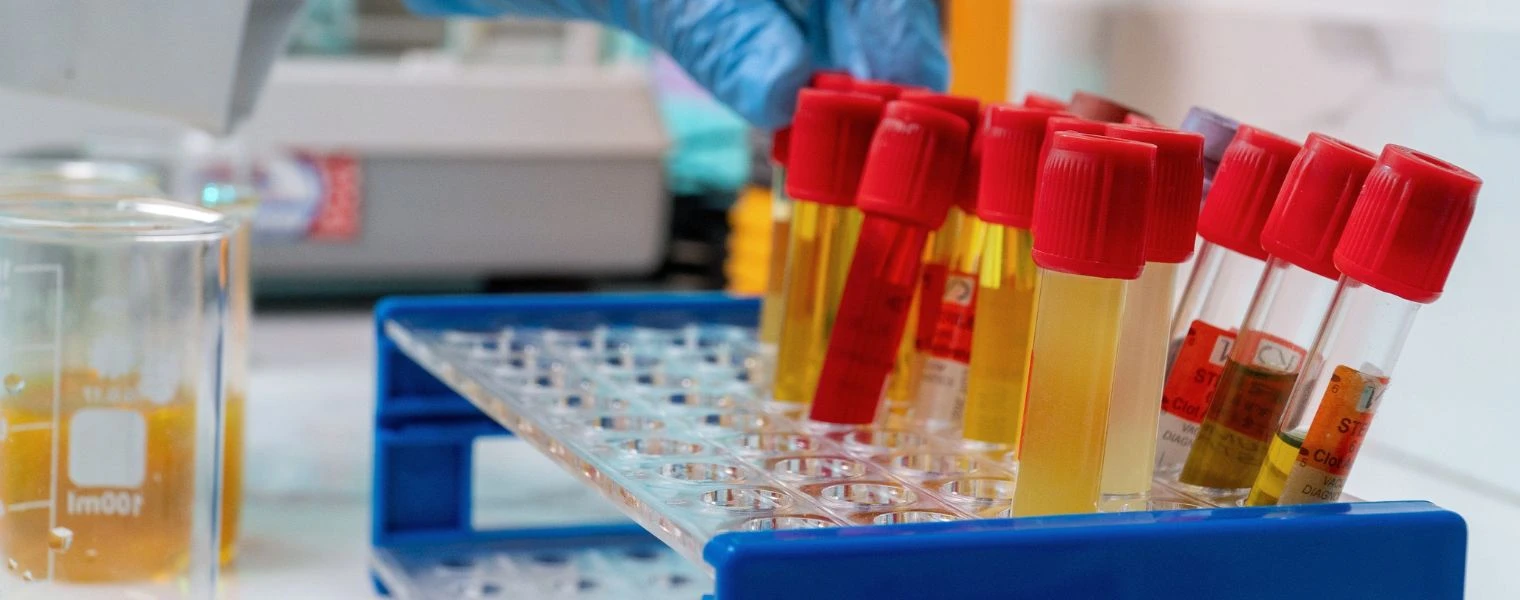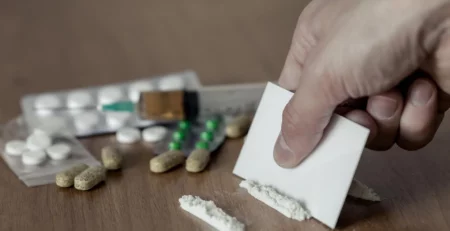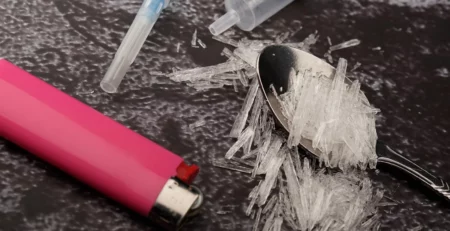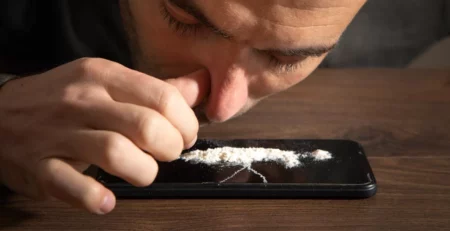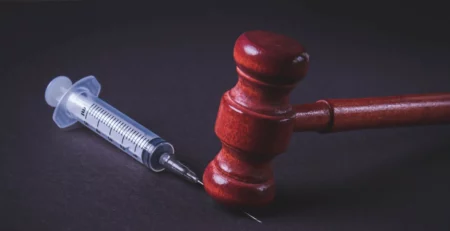How Long Does Alcohol Stay in Your Urine?
Get Guidance on How Long Alcohol Stays in the System and More
People are issued drug tests for many reasons. Whether for probation or parole guidelines, custody court, or conditions of work, many of us have found ourselves anxiously awaiting the results of a drug screening after unwinding with a few drinks after a stressful day at work or a night out with friends.
This can leave you asking questions like: “How long does alcohol stay in your urine?” and if there’s anything you can do to speed up this process. Don’t worry – we have the answers below.
You’ll also find guidance on the possible consequences of failing an alcohol test and steps for reaching out to Icarus Behavioral Health in Nevada if you believe that alcohol use is negatively impacting your life.
How Long Does Alcohol Stay in Urine?

Typically, alcohol can be detected on urine tests for 12-24 hours after use. The detection window can be much longer (up to 72 hours or longer) depending on the type of urine test and how efficiently your body processes alcohol.
Different Types of Urine Tests
In a standard urine test, alcohol is detectable for up to 12-24 hours. Ethyl Sulfate and Ethyl Glucuronide tests offer a longer detection window; up to 36 hours and 80 hours, respectively. This detection window can be longer for people who have a slow alcohol metabolism, higher body weight, or who engage in heavy drinking.
How Long Can Alcohol Be Detected on Other Drug Tests?
Urinalysis is not the only type of drug test used to detect alcohol intake. Hair tests detect alcohol for up to 90 days after use, while alcohol can only be detected on a blood, saliva, or breath test for 12-24 hours.
Get Effective Alcohol Detox and Rehab Options at Icarus
Understanding How the Body Processes Alcohol
Alcohol absorption starts in the stomach where about 20% of alcohol consumed is processed before entering the bloodstream. The remainder of your alcohol intake enters your entire body through the bloodstream via the small intestine, then travels to the liver, kidney, brain, and lungs.
The liver eliminates the greatest percent of alcohol, breaking it down with the enzyme alcohol dehydrogenase. Some alcohol is also eliminated through sweating, urination, and respiration. It will take approximately one hour for your body to fully eliminate a standard drink and for your blood alcohol concentration to reach zero.
Metabolites like ethyl glucuronide are created during the process. Urine alcohol detection tests work by testing for these metabolites. This means that how long alcohol’s effects last does not determine whether you’ll pass a urine test or blood test. The metabolites from alcohol can be detected much longer.
Factors Affecting Alcohol Metabolism

According to the National Health Services of the United Kingdom, it takes approximately two hours to process a beer but around one hour to process a shot. However, many factors affect this and how long it takes in your body depends on factors like:
- Amount/type of food in your stomach – Drinking alcohol on an empty stomach causes alcohol to be rapidly processed. Drinking with food makes the absorption rate slower, so it takes longer for your body to process one standard drink.
- Biological sex – Women typically have a higher body fat than men, allowing them to process alcohol more slowly. They also have less of the enzyme that breaks down alcohol.
- Body size and composition – A person’s body composition and how much fat they have affect how quickly the effects of alcohol are felt. Someone with a lower percentage of body fat feels the effects of alcohol sooner because they do not have as much body tissue as someone with a higher percentage. Alcohol enters the bloodstream faster and they have a higher BAC (blood alcohol concentration).
- Age – Most people lose water and gain body fat as they age, changing how well their bodies process alcohol. People with a higher body water percentage don’t feel the effects as strongly when drinking alcohol because it dilutes the amount of alcohol in the bloodstream.
- Certain medications – After entering the stomach, many medications are then processed by the liver. They may absorb more slowly or change the way that your body processes alcohol because your liver is already occupied. It’s important to consult with healthcare providers before drinking on any prescribed medication.
- Type of drink – Liquor has a smaller volume than regular beer, so it is processed more quickly. Alcohol with fizzy drinks like pop also processes faster than alcohol combined with juice. Whether you drink dark or clear alcohol does not affect how long alcohol stays in your system.
- Overall health – For people with certain health conditions, it’s possible that one or more organs do not work as well as they should, affecting alcohol metabolism.
Your alcohol metabolism can vary based on all these factors, making it hard to predict how quickly your body metabolizes alcohol. The only way to guarantee passing a urine alcohol test is to avoid consumption in the first place.
Can I Make My Body Metabolize Alcohol Faster?
You may have heard that drinking water, eating something, drinking coffee, exercising, or taking a cold shower can help you feel sober faster. These things might make you feel more sober. However, they do not make alcohol leave your bloodstream any faster.
You cannot force yourself to sober up from alcohol use once it has been consumed because your body has a constant rate of alcohol metabolism. Drinking water and eating food can slow how fast it hits you so you don’t feel as drunk, while coffee, exercise, and cold showers make you feel more alert, but don’t make you any more sober.
Get Accredited Treatment Programs at Icarus – Call Now!
When Will My Blood Alcohol Concentration Reach Zero?
According to Stanford University, your blood alcohol concentration (BAC) is affected by several factors. This means that two people who have consumed the same amount of alcohol might have very different levels of inebriation by the time they consume their last drink.
On average, your body processes anywhere from 15-25 milligrams per hour, the amount found in one standard drink. This means after one drink, it takes about one hour for you to feel completely sober. Alcohol accumulates in the body, so if you drink more than one drink per hour, it will take longer for this higher BAC to come down.
A standard drink is defined as 1.5 oz. of distilled liquor like vodka, rum, whiskey, or gin, 5 oz. of wine, 8-9 oz. of malt liquor, or 12 oz. of beer. Even once your blood alcohol concentration reaches zero, tests can detect alcohol in your urine. Your alcohol metabolism can also affect how long it takes your BAC to come down.
What Happens if I Fail a Drug Test for Alcohol?

The consequences of failing an alcohol test depend on why the test is being administered. For someone who is on probation or parole, for example, testing positive for alcohol may violate conditions set by the court and lead to legal consequences or imprisonment.
There are protections in place for employees who are struggling with substance use disorders. However, these protections might change depending on workplace policy. Employers can also terminate you if you cannot fulfill job duties or are intoxicated at work.
When to Seek Help for Alcohol Addiction
Alcohol is one of the most commonly abused substances across the United States because of its legality and social acceptance. Unfortunately, this can make it hard to set boundaries for yourself and know when having occasional alcoholic beverages to relax is spiraling into a habit.
If alcohol consumption is negatively impacting your relationships, finances, health, employment, or legal status and you are still unable to quit, it could be a sign to reach out for help.
Still not sure if you should seek treatment for alcohol abuse? Reach out to Icarus for a drug and alcohol assessment. During the assessment, you’ll be asked questions about substance use, family history, and life stresses to determine your risks and evaluate whether treatment would be helpful.
Treatment Options for Alcohol Addiction
The most effective treatment approach for substance use disorder, including alcohol abuse, is a comprehensive, individualized plan. Here’s a look at possible treatment options.
Medical Detox
Alcohol is a depressant. If you quit cold turkey after extended heavy drinking, you’re likely to experience uncomfortable (and sometimes dangerous) withdrawal symptoms. In medical detox, medications may be used to help reduce these symptoms, making detox safer and more comfortable.
Individual and Group Counseling
During individual therapy, you’ll work to understand the reasons that you rely on alcohol. You’ll build motivation for sobriety, learn skills for combatting cravings, and deal with underlying mental health issues, stress, or trauma that may contribute to the desire to drink.
Group counseling teaches social skills and makes you feel part of a community. It’s also helpful celebrating triumphs and discussing struggles with people who have been where you are.
Recreational Therapies
Recreational therapies teach you about your interests. They can also encourage relaxation, build confidence, and remind you that you can experience pleasure in life without drinking alcohol.
Structure and Skill Building

Sobriety is more than avoiding alcohol consumption. It’s important to lead a lifestyle that supports continued recovery so you no longer find yourself wondering how long alcohol stays in your system, if you’re sober enough to drive, or if you’ll make questionable decisions while under the influence.
During a comprehensive treatment program, you’ll learn about the importance of structure and routine. Things like nutrition, self-care, sleep, and recreation all play a big role in supporting sobriety.
Dual Diagnosis
Dual diagnosis is recommended for clients struggling with co-occurring addiction and mental health disorders. Co-occurring disorders exist in approximately 50% of people struggling with substance abuse.
Up To 100% of Rehab Costs Covered By Insurance – Call Now!
Get a Path to Lasting Sobriety at Icarus in Nevada Today
Tired of worrying about how long does alcohol stay in your system and whether you’ll pass your next alcohol urine or blood test? Reach out to Icarus today and stop living with the negative effects that alcohol is having on your life.
One of our knowledgeable experts is waiting by the phone to provide more information, answer questions, or verify your insurance. We understand that just reaching out is a huge step, so we aim to make getting into recovery as easy as possible. Let us show you how!

